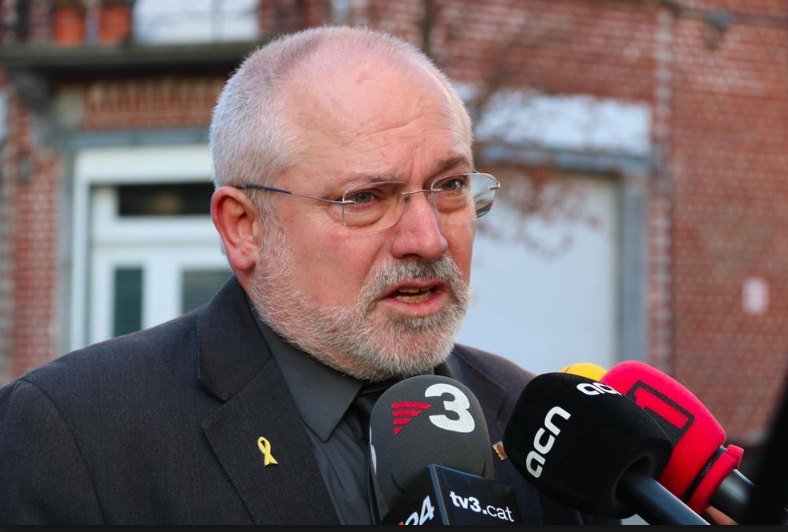11.01.2021 - 10:35
|
Actualització: 11.01.2021 - 11:35
Belgium has officially rejected Spain’s attempt to extradite deposed Catalan minister Lluís Puig after prosecutors gave up on further legal challenges, following Thursday’s decision by the Brussels Appeals Court to dismiss the international arrest warrant. Puig is wanted by Spain for his role as a member of the Catalan government that called an independence referendum in 2017, causing an unprecedented territorial crisis in Spain.
Belgium’s public prosecutor office, which had been acting in representation of Spain’s Supreme Court, will not challenge the appeals court ruling, which upheld a previous decision to reject Puig’s extradition. According to Puig’s lawyers, Belgian judges believed the Supreme Court did not have the authority to try him and raised concerns that Puig’s presumption of innocence was at risk in Spain.
In Belgium, Puig has continued to be politically active alongside exiled president Carles Puigdemont and other pro-independence leaders. In October 2019, nine of Puigdemont’s former ministers who stayed in Catalonia and faced trial for the independence push were sentenced to serve between 9 and 13 years in prison for the crime of sedition.
Consequences
In an interview with VilaWeb, Lluís Puig evaluated the importance of this decision: “It has a very high political value for several reasons. It serves as a precedent for any exiled person who is claimed in Belgium or another European country during the independence process, as it states the high risk of their right to presumption of innocence in Spain being violated. This serves now and in the futue, because we are trapped in a circle of ideological persecution by the Spanish judiciary. At the same time, I have the feeling that Spain is being left out of Europe; the European judicial system is placing Spain out of justice standards in the fight against Catalan independence. And this is very serious”.
According to one of Puig’s lawyers, Jaume Alonso-Cuevillas, now “there are two judicial truths about the same facts, and therefore the most respectful of the legal principles of presumption of innocence and in dubio pro reo must be imposed”. Alonso-Cuevillas defends that “all those convicted by the Spanish Supreme Court should be released immediately”.
Indeed, the firm decision of the Belgian judiciary to deny Puig’s extradition is the hardest defeat of Spanish justice in the repression against independence. And it can have very serious consequences. The judiciary of a country within the EU openly states that there is another country of the Union that violates fundamental rights of its citizens, who are also citizens of the Union. It also states that there are serious doubts that Lluís Puig would get a fair trial in Spain because his presumption of innocence would be violated, given the public statements of government officials, prosecutors and judges criminalizing Catalan political prisoners and exiles. To uphold this, the Court of Appeal invokes the ruling of the UN Working Group on Arbitrary Detention, which in May 2019 demanded the immediate release of prisoners.
Last but not least, this decision takes place a few days before the appearance of Puigdemont, Comín and Ponsatí in the Committee on Legal Affairs of the European Parliament for the petition against their immunity.


